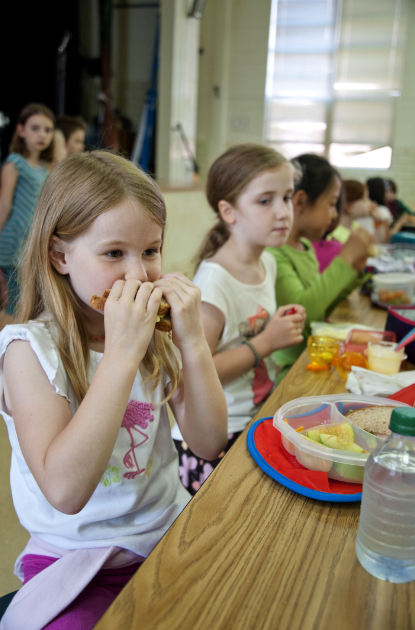24 hours after Donald Trump took the oath of office, millions of people around the world took to the streets. It was the biggest protest in U.S. history, and it took place on every single continent. Yes, including Antarctica.
Photo by Dan Kitwood/Getty Images.
The message of the Women's March was clear: We the people will stand up for what we believe in, to protect our rights and to protect the rights of others who are in jeopardy under the Trump administration. Over 2 million people showed up to do just that.
Whether you attended a women's march or just watched the coverage, it was hard not to be moved and inspired.
Celebrities, politicians, influencers, and people of every age, gender, and nationality marched in solidarity for the rights of women, immigrants, Muslims, the LGBTQ community, and other groups that Trump as president has promised to further marginalize.
As great as it was, the march certainly was not the entirety of the resistance. It was just the beginning.
If you want to carry on the work of the Women's March, here are seven things you can do right now:
(Plus one thing you shouldn't do.)
1. Follow the march organizers — national and local — on social media.
The Women's March on Washington was put together by a fierce group of badass women who will be the first to tell you that what's really important is what happens next. In fact, the Women's March website has already released a 10 Actions/100 Days list of things you can do to carry the message forward.
Tamika Mallory, Carmen Perez, Bob Bland, and Linda Sarsour are four of the main organizers for the D.C. march, and there are many others. Follow them on Facebook and Twitter to get updates and information on how you can be a part of the key next steps.
Gloria Steinem (middle) with Women's March organizers in Washington, D.C. Photo by Theo Wargo/Getty Images.
Many of the march organizers have been facing harassment online, and there are currently hashtag campaigns to support them and stand with them in solidarity.
If you attended a march in your town, find out who organized it and get in touch with them, too. They'll be able to tell you about future organizing efforts local to you.
2. There are going to be more opportunities to march. Start spreading the word.
Activists are already planning to march on Saturday, April 15, 2017, in an effort to get Trump to release his tax returns to the public.
That march can be as big as the Women's March, but it's going to take some serious on-the-ground organizing. In other words, it's going to take people like you talking about it and getting others excited.
There is another march planned in April for climate action, and many others will be popping up. Keep an eye out, and keep others informed.
3. Call your representatives.
I know — you're probably tired of hearing it, right?
Well, think of it this way: The next time someone tells you to call your representatives, wouldn't it be nice to say, "I already do. All the time. Because I'm a person who understands the power of raising my voice for the issues I care about, and I know that my elected officials are paid to listen to me."
Remember, just because your elected official isn't from your political party, that doesn't mean you can't call them. Once they're elected, their job is to serve all their constituents. So go ahead and make your voice heard.
To find your representative's contact info, click here.
4. Become a member or volunteer for organizations that need support.
You've heard the call for donations before. Organizations like (deep breath) ... Planned Parenthood, the National Resources Defense Council, the Center for Reproductive Rights, the Mexican American Legal Defense and Educational Fund, the International Refugee Assistance Project, The Trevor Project for LGBTQ youth, the NAACP, the National Network of Abortion Funds, Black Girls Code, the ACLU, the National Women's Law Center, NARAL, Girls Write Now, the National Coalition Against Domestic Violence, Purple Purse, All Above All, Moms Demand Action, No Kid Hungry, Greenpeace, the Southern Poverty Law Center, ProPublica, The Anti-Defamation League, the Human Rights Campaign, Americans for Immigrant Justice, the Sylvia Rivera Law Project, Lambda Legal, Know Your IX, Immigration Impact, Emily's List, the Climate Science Legal Defense Fund, Everytown for Gun Safety, GLAAD, and so many more, are all going to need a lot of support over the next four years.
A one-time donation might not be enough. Consider a monthly recurring donation (if it's a small amount, you might not even notice it), or at least sign up for the email newsletter that a lot of these organizations have. That way you'll regularly get information on how to support the issues you care about.
Planned Parenthood president Cecile Richards speaks at the Women's March. Photo by Andrew Caballero-Reynolds/AFP/Getty Images.
If you can't donate? Look for volunteer opportunities. These organizations will need all the help they can get.
Planned Parenthood even has a thorough, itemized list of things you can do right now to stand with them.
5. Form a rapid-response team with your friends.
If the Women's March taught us anything, it's that those of us who reject the policies proposed by the incoming administration are not alone. There are millions of us, and we're all over the world.
One way to make sure you actually have the time to take action is to gather a handful of friends and form a rapid-response team. That means that every time you want to mobilize (to attend a protest or volunteer or start a phone bank to protest a specific piece of legislation), you have a group of people you can rely on to join you.
Do it right now! Start a group message on your phone, and get your friends involved. First mission: Come up with a badass team name.
6. Start playing politics.
Tired of all these politicians messing with your lives and enacting laws that you either disagree with or are directly endangered by? Yeah, there's a lot of that going around.
The thing is, politics is a team sport, and you're on a team whether you like it or not. You might as well start playing.
Photo by Joe Raedle/Getty Images.
Vote in your local elections and campaign and volunteer for politicians you like. Vote in the midterms in 2018! This nifty site called Swing Left lets you look up your nearest "swing district" — where the last election was decided by a thin margin. Focusing on those areas means you can make a real, political difference.
Most of all, don't forget you can run for office too. Consider it even more seriously if you're a woman, a person of color, and/or LGBTQ. There are resources available to help you with the specific steps and challenges you will face.
Be the change, diversity, and representation you want to see in the world.
7. Read up. On everything.
Now that the GOP has a clear runway to do pretty much whatever they want, they're going to be busy. An important part of making sure your voice is heard when you disagree with their proposals is to keep track of what's going on. You'll need to know when the Senate is voting on that bill you hate and when the law that takes your 3-year-old's teddy bear away goes into effect.
That means reading the news, the real news, and supporting the real journalism that will be helping to get information to the public.
One thing you shouldn't do? Don't assume others will act.
If there's one thing you should not do in the coming years, it's sit back and assume others will act for you. The Women's March was a success because people got involved and actually showed up.
They didn't just say, "Oh, it's great that someone's doing that. I hope it's a success." They got on planes, they crashed on couches, they brought friends, they showed up for real.
Photo by Mario Tama/Getty Images.
We're going to need more of that. A lot more. Don't assume that organizing, resisting, and fighting is someone else's job. We're all in this together.
Whatever you do, do something.
It's not going to be easy, but standing up for the things you believe in is important and necessary. It's what we all signed up for when we decided not to move to Canada after the election.
So pull yourself up, and look at as many pictures of the Women's March around the world as you can until you realize that you have the power to make change.



 Student smiling in a classroom, working on a laptop.
Student smiling in a classroom, working on a laptop. Students focused and ready to learn in the classroom.
Students focused and ready to learn in the classroom.
 A woman telling you to be quiet.via
A woman telling you to be quiet.via  A woman telling you to be quiet.via
A woman telling you to be quiet.via 
 Fish find shelter for spawning in the nooks and crannies of wood.
Fish find shelter for spawning in the nooks and crannies of wood.  Many of these streams are now unreachable by road, which is why helicopters are used.
Many of these streams are now unreachable by road, which is why helicopters are used. Tribal leaders gathered by the Little Naches River for a ceremony and prayer.
Tribal leaders gathered by the Little Naches River for a ceremony and prayer.
 A man standing up inside a plane
A man standing up inside a plane A hospice nurse with her female patient.
A hospice nurse with her female patient. 
 Can't quite imagine this on the average American school lunch tray.
Can't quite imagine this on the average American school lunch tray. A typical American school lunch.
A typical American school lunch. Kids eating lunch.
Kids eating lunch.